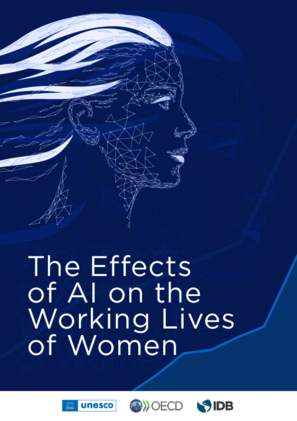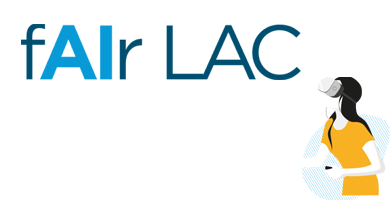Back to Observatory
BETTO Project (Wellbeing, Efficiency, Transparency, Technology, and Opportunity)
Description of the service
BETTO Project (Wellbeing, Efficiency, Transparency, Technology, and Opportunity) is a tool created by the Colombian Family Welfare Institute (ICBF) targeting efficiency, transparency, and quality in early childhood care services in Colombia, that consolidates search and identification processes for children between 0 and 5 years of age without access to early childhood services, especially in rural and dispersed rural areas of the country, as well as objectively selecting the best operators for comprehensive and quality early childhood care.
It is a vehicle for targeting beneficiaries and ensuring transparency in contracting quality services by geo-referencing potential users in the 32 departments of the country and prioritizing them based on 11 variables defining poverty and vulnerability levels. It also analyzes the performance index of each operator, specific experience in the territory, and operational and financial capacity, giving higher scores to operators without sanctions. This AI-based technological solution collects and groups information, makes decisions, and facilitates the processes with the final goal of contributing to the welfare of children and the country's development.
Problem that it solves
Contracting early childhood services in Colombia uses a special regime known as a 'contribution contract' through a National Bank of Offerors that enables NGOs and public organizations to bid each year to provide services to 1.700.000+ children between 0 and 5 years old. Accordingly, an annual geo-referencing should be done to identify beneficiaries, thus reaching the country's most vulnerable population to reduce gaps and create a welfare scheme from early childhood.
ICBF must guarantee that these processes are objective, ensuring that the best operators are selected to serve millions of children breaking corruption or favoritism schemes as an execution guarantee of one of the country's crucial missions. Beneficiaries need to be identified based on objective criteria and reached in rural and dispersed rural areas with poverty gaps of 42.9%.
Before contracting, ICBF needs to identify, prioritize, and geo-reference vulnerable and unattended children under five, and plan and distribute quotas and beneficiaries throughout the country to guarantee an efficient budget allocation and execution, and serve the most vulnerable children in the country. Automating this process using algorithms will ensure efficiency and reduce possible human errors.
Also, the operator selection process implies verifying and validating objective selection rules that guarantee compliance with the purposes and principles of state contracting efficiently and transparently. For this, it was necessary to incorporate technologies that would automate the invitation and selection processes, increase publicity in the invitation process to all qualified bidders, prioritize the operators with the highest quality, experience, track record and without sanctions, and guarantee transparency and objective selection.
BETTO, the algorithm created by the ICBF, breaks the subjectivity of the selection of operators, ensuring transparency, efficiency, and quality, and geo-references children who must access services to ensure their full development.
Type of AI app used
Target-focused optimization, Reasoning with knowledge structures, Prediction
Main results to June 30, 2021
BETTO effectively engaged 217,000 new beneficiaries in conditions of vulnerability and poverty who had not had access to ICBF care options for early childhood. Of this total, 69,600 are children in rural areas, and 14,600 are self-recognized as part of an ethnic group. The application of AI algorithms processing current and historical information enabled the optimization of the attention capacity of the 69,000 existing attention units, defined the creation of 32 new service units in areas of high vulnerability, and predicted the transit of children to the formal education system, ensuring the effective location of previously targeted beneficiaries.
In turn, the IA algorithms for the selection of bidders allowed the simultaneous application of verification, selection, and tie-breaking criteria for 12,738 bids that resulted in 1,138 contracts for a value of COP $2.2 trillion, representing 743,741 slots for early childhood care throughout the national territory, guaranteeing plurality, diversity of bidders and no concentration of contracts.
Three main bottlenecks faced during implementation
- Data governance in articulating the entity's data sources and others provided by external entities.
- Validating results as it is the first AI solution for selecting bidders in public procurement.
- Deadlines to implement the solution seeking a balance between a robust technological architecture and the timely and reliable fulfillment of input results for contracting bidders at the national level.
Lessons learned in the design or use of AI for social impact
- The relevance of interdisciplinary groups to articulate and build a technological solution with integral and effective results.
- The importance of ongoing and visible support from the entity's management with resources for the project development.
- The importance of having the support and validation of strategic stakeholders, such as the Inter-American Development Bank, the World Bank, and UNICEF.
Country of origin
Geographic scope of operations
Colombia
Website
https://www.icbf.gov.co/Type of executing entity
GovernmentSector/industry
Sustainable Development Goal(s) to which your AI solution contributes
1 (no poverty)
2 (zero hunger)
4 (quality education)
8 (decent work and economic growth)
10 (reduced inequalities)
IA app developed internally or by a third party
External company
Name of implementing entity
The Colombian Family Welfare Institute (Instituto Colombiano de Bienestar Familiar, ICBF), Colombia
Stakeholders involved
ICBF, Government CSIRT and National Police CSIRT, COLCERT (National Police Cyber Emergency Response Group), Microsoft Colombia, Presidential Council for Innovation and Digital Transformation, Inter-American Development Bank-IADB, World Bank, and UNICEF.
Percentage of the development team that are women
37%
Year they started using AI-based models
2020It may interest you
Globally, studies show that women in the labor force are paid less, hold fewer senior positions and participate less in science, technology, engineering and mathematics (STEM) fields.
This self-assessment tool is designed to allow the mitigation of ethical risks associated with the use/application of new technologies. It is available so that the ethical performance of each system can be evaluated from the beginning.
Cada vez más, actores públicos y privados se plantean cómo escalar su impacto a través del uso de la tecnología.



